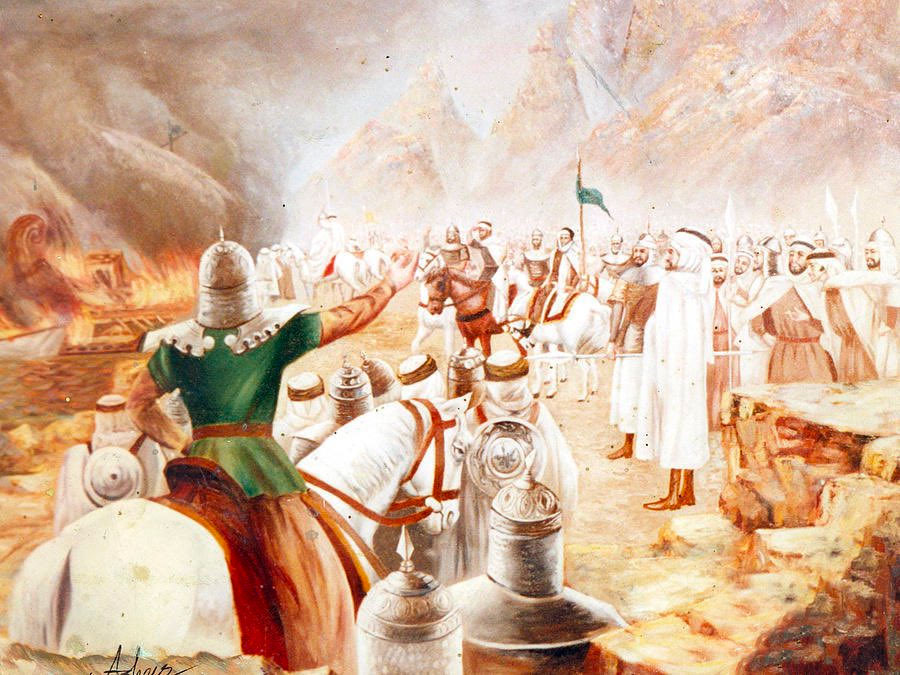Let’s face it: change is scary. Our brains are naturally averse to it because of the stress and discomfort change brings.
However, if we look around, the people who succeed — whatever the definition of success is for the specific individual — are the ones who find the audacity to change their lives in one or more ways.
Of course, it takes a lot of courage and grit to fully commit to something, and you likely have to sacrifice a thing or two in the process.
There’s something exhilarating, however, about pushing yourself to overcome a challenge with that all-or-nothing resolve.
Today, we’re going to take a look at a Chinese expression that captures this sentiment perfectly.
The Expression
Smash the pots and sink the boats
破釜沈舟 / 破釜沉舟
pò fǔ chén zhōu
Go all in; go for broke
China
Origin of the Expression
The expression first appeared in Records of the Historian, a monumental text written by Sima Qian.
The book covers 2,500 years (!) of Chinese history, spanning from the Yellow Emperor (~2698–2598 BCE) to Emperor Wu of the Han Dynasty, which was contemporaneous with the author (around 94 BCE).
The Story
According to Records of the Historian, the Qin Dynasty — first dynasty of imperial China — was teetering on the brink of collapse by the year 207 BCE.
Its newly self-proclaimed emperor was useless. Insurgent rebel forces were forming left and right to battle the army of the imperial government, trying to overthrow the empire.
Battle of Julu
One of the most pivotal battles was fought at Julu. The battle pitted Qin commander Zhang Han against general Xiang Yu, leader of the troops from the insurgent state of Chu.
The established Qin forces outnumbered the Chu troops 200,000 to 50,000. Yet, in the end, Xiang Yu was able to lead his soldiers to victory.
| Battle of Julu (~207 BCE) | |
| Representing | |
| Qin dynasty | Chu state |
| Commanders | |
| Zhang Han | Xiang Yu |
| Strength | |
| 200,000 trained soldiers from the imperial army | 50,000-60,000 soldiers from the rebel insurgency |
| Winner | |
How did he do it?
Outnumbered? No problem.
First, General Xiang Yu surveyed the situation.
The Qin imperial army had established themselves firmly in Julu, and several insurgents groups from different city-states had already attempted to attack them to no avail.
Xiang Yu knew he, too, wouldn’t be able to prevail in a head-on clash. Instead, he decided to first send two of his deputies along with 20,000 of his rebel soldiers across the Zhang River to the Qin army base.
Along the way, they destroyed supply routes for the Qin imperial army and won a few skirmishes.
Smash the Pots and Sink the Boats
Then, Xiang Yu ordered the rest of his troops to carry only three day’s worth of food and supplies and led them across the river himself.
Immediately upon arriving on the other side, Xiang Yu had his soldiers destroy all cooking pots and utensils and all the boats they had just used to cross the river.

The message was loud and clear: there was no turning back. To survive, they would have to defeat the enemy and take over their supplies.
Xiang Yu’s soldiers fought doggedly—like their lives depended on it—and went on to win the next nine engagements with Zhang Han’s Qin forces.
Fall of the Qin Dynasty
As a result of these victories, Xiang Yu was able to recruit more men to join the Chu army.
They would go on to destroy the capital of the Qin empire just a few short months later, effectively leading to the downfall of the first dynasty of China.
It’s been 2200+ years since the battle, but the expression “smash the pots and sink the boats” is still used in Chinese vernacular to describe the go-for-broke mentality one adapts to commit to a challenge.
Usage Examples
Here are a few examples of how this particular Chinese expression can be used in conversation.
- 唯有破釜沉舟,我們才能解決所有難題,達成目標。
Going for broke is the only way for us to overcome all our obstacles and reach our goals. - 只要有破釜沉舟的決心,沒有不能完成的事情。
Nothing is impossible as long as you have the resolve to go all in. - 我決定破釜沉舟,辭掉穩定的工作,專心創業。
I decided to go all in and quit my stable 9-5 to focus on launching my business.
Smashing Pots in Other Cultures
Of course, the idea of going all in isn’t unique to the Chinese. We can find manifestations of it throughout history and across cultures.
Julius Caesar’s Rubicon Crossing
The closest equivalent in English to this expression is likely “to cross the Rubicon,” which means to pass a point of no return. Interestingly, the story behind this expression also involves a river crossing.
Julius Caesar was originally a governor of the region of Southern Gaul. At the end of his term around 49 BCE, the Roman Senate ordered him to disband his troops and return to Rome.
It was illegal at the time to bring armies into Italy, whose northern border was marked by the river Rubicon.

Caesar disobeyed the Senate and crossed the river with his troops. Some historians have said that Caesar uttered the phrase alea iacta est (“the die is cast”) before crossing.
Roman government saw Caesar’s actions as a declaration of war, and this irreversible event ultimately led to the rise of the imperial era of Rome as Caesar’s adopted son Augustus became the first Roman emperor.
Tāriq ibn Ziyād Leads Islamic Conquest of Spain
Another example of this kind of go-for-broke attitude comes from 711 CE.
“Burn your boats,” said Tāriq ibn Ziyād, a Muslim commander, in a stirring speech to his troops upon landing on the Iberian Peninsula.
His force, comprising 18,000 men, was drastically outnumbered by the 100,000 fighters King Roderic of Spain had amassed.

With the possibility of retreat completely cut off, though, Tariq’s men had no choice but to fight as hard as they could. They ended up defeating the Spanish army. Tariq marched on and eventually took Toledo, capital of Spain at the time.
Tariq’s conquests laid the foundation for Islamic rule of Spain for more than 750 years. One can see Islamic influences in Spanish art and culture even today.
Although whether or not Tariq actually ordered his men to burn their boats is somewhat up for debate, it is still fascinating to see the similarities this event shares with the Battle of Julu.
More importantly, the message is the same: sometimes you need to go all in if you want to overcome seemingly insurmountable odds and make your mark.
Most of us today are fortunate enough to not have to go into battle and literally fight for our lives.
However, we do experience situations that require us to have the resolve and guts to go-all-in and take a leap of faith. Can you think of a situation where you did exactly that?
Let us know in the comments!



